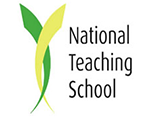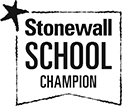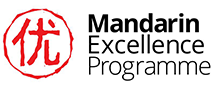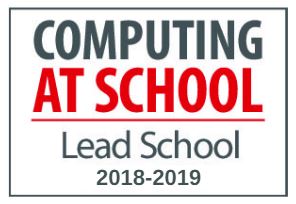Assessment at Fortismere
Assessment at Fortismere
Assessing students’ progress is a necessary part of teaching and learning. At Fortismere, we believe our assessment practice is fair and not overly onerous. Assessments are fit for purpose and form an integral part of teaching and learning.
We will report on students’ progress two times a year at KS3 and three times a year at KS4 and KS5. Feedback regarding students’ progress will still continue to happen in class, at parents’ evenings and in the annual reports (which will be written by tutors).
ASSESSMENT AT KS3 (Years 7-9)
Departments have worked hard to ensure that the curriculum that we provide to students is broad, balanced, coherent and well sequenced. We believe that students will make progress if they have learnt the curriculum at KS3. As such we have devised a system that assesses only the content of the curriculum that has been taught to the students. (Curriculum Maps can be found on the Curriculum page of the school website)
We are not trying to predict GCSE attainment from Key Stage 3 assessments and so we will no longer be using the language of GCSE grades. Instead we will have Progress Points two times a year when we will provide a percentage score for each subject that your child achieved in assessments designed to test how much of each subjects’ curriculum they have learnt to that point. Alongside the individual percentage there will be a Year Group Average Mark and the Minimum Expected Grade in order to provide a context of what the percentage means. Students would be seen to be making good progress if their percentage score is consistently above the Minimum Expected Grade (MEG). The MEG is the twentieth percentile mark achieved in the relevant assessment.
In addition to these assessments there will be in class ‘Hinge’ assessments two times a year. These will take place for all subjects in the same two-week window for each year group. The outcomes of these assessments are to be used by class teachers to judge students’ progress and identify gaps in learning, there will not be a grade or percentage score communicated to home as they are an internal mechanism to help teachers to give feedback to students and to plan for differentiated lessons. The outcomes will not be sent home but communicated to the students.
Year 7 and 8 Progress Point 1
Assessment Window: 7/10/2024 to 18/10/2024
Year 9 Progress Point 1
Assessment Window: 21/10/24 to 06/11/24
Year 7 and 8 Progress Point 2
Assessment Window: 03/03/25 to 14/03/25
Year 9 Progress Point 2
Assessment Window: 03/03/25 to 14/03/25
Year 7 Progress Point 3
Assessment Window: 12/5/2025 to 23/5/2025
Year 8 Progress Point 3
Assessment Window: 2/6/2025 to 13/6/2025
Year 9 Progress Point 3
Assessment Window: 12/5/2025 to 23/5/2025
Progress Point Reports will appear in SIMS approximately two weeks after the last exam date.
Availability of the reports will be communicated via the Head of Year.
Whilst these assessments are important, they are ‘low stakes’ in that they do not have significant consequences if a student does not perform well.
Reporting at Ks3
Pupil reports focus on student progress and will inform students and parents of the progress made through the curriculum. Reports will happen after each of the Summative Assessments and students and parents will be presented with:
- A percentage score for each student, in each subject that they study
- A score for the student’s attitude to learning/behaviour/classwork/homework
- An average percentage score for the cohort
- Minimum expected percentage (calculated after marking)
- Attendance percentage
- The number of occasions the student was ‘Late’
- Number of positive and negative behaviour points
Targets at KS3
We believe that all students can make outstanding progress regardless of prior performance. As such we do not share prior data or target data at KS3 with parents or students to promote a Growth Mindset and to avoid setting limits. Our Staff understand that students can make significant leaps in terms of learning and therefore should not cap students with their target data but seek to exceed it.
KS3 ASSESSMENT GUIDE FOR PARENTS - KS3 VIDEO
ASSESSMENT AT KS4 (Yr 10-11 GCSE) & KS5 (Yr 12-13 A Level)
Students at KS4 and KS5 will be assessed three times a year and that information will be shared at Progress Points. We will be using either the standardised 1-9 (for GCSE) or A*-E (for A level). At each Progress Point you will be able to see:
- Progress Point (Working at Grade)
- Predicted grade
- Attendance percentage
- The number of occasions the student was ‘Late’
- The student's attitude towards their learning
- Number of positive and negative behaviour points
Progress Point (Working At Grade) Definition - The grade a student is currently performing at. This is the grade the student would achieve if they were to sit a GCSE/BTEC that assessed them on everything that they have been taught so far.
Predicted Grade Definition - The impression I have at this moment of this student's work, attitude, ability, skills and knowledge from all the evidence s/he has produced in and out of class, leads me to say at this stage that I would predict her/him to gain a grade X at the end of the course.
Year 11 and 13 Progress Point 4
Assessment Window: 23/9/2024 to 11/10/2024
Year 10 and 12 Progress Point 1
Assessment Window: 18/11/2024 to 29/11/2024
Year 13 Progress Point 5 [Mock Exam]
Assessment Window: 7/1/2025 to 17/1/2025
Year 11 Progress Point 5 [Mock Exam]
Assessment Window: 13/1/2025 to 24/1/2025
Year 10 and 12 Progress Point 2
Assessment Window: 10/2/2025 to 28/2/2025
Year 11 and 13 Progress Point 6
Assessment Window: 24/2/2025 to 4/3/2025
Year 12 Progress Point 3 [Mock Exam]
Assessment Window: 16/6/2025 to 27/6/2025
Year 10 Progress Point 3 [Mock Exam]
Assessment Window: 30/6/2025 to 9/7/2025
Progress Point Reports will appear in SIMS approximately two weeks after the last exam date.
Availability of the reports will be communicated via the Head of Year
In addition to the Progress Point Assessments there will be in class ‘Hinge’ assessments for Year 10 and Year 12. These will take place for all subjects in the same two-week window for each year group. The outcomes of these assessments are to be used by class teachers to judge students’ progress and identify gaps in learning, there will not be a grade or percentage score associated with these. Instead, they are an internal mechanism to help teachers to give feedback to students and plan for differentiated lessons. The outcomes will not be sent home but communicated to the students.
Targets at KS4
At the beginning of Year 10, students are given a target for each KS4 subject they study. This will be taken from the Fischer Family Trust (FFT) Aspire Programme and we will use a Top 5% target grade for all students. These grades are highly aspirational, but it is our belief that these are obtainable by our students. FFT targets are based on how similar students nationally performed in the subject in the previous year (similar students are defined as those with similar prior attainment, gender and month of birth). The ‘very high’ targets compare schools that made much greater than average progress.
Targets at KS5
Students will be given a target grade in the A level/BTEC subjects they study at the beginning of Year 12. Targets will be set using ALPS methodology. ALPS uses the full national dataset from the previous year to set the targets. The Minimum Expected Grade (MEG) that each student is taken from the 75th percentile. We will adjust the grade by subject depending on the ALPS weighting system which takes into account the outcomes for the subject nationally.
READING YOUR REPORT- KS3
KS4 ASSESSMENT GUIDE FOR PARENTS - KS4 VIDEO
REPORTING AT ALL KEY STAGES
Alongside the grades (or percentages) at Progress Points, teachers will provide feedback (in the form of a score) on the student’s:
- Attitude to learning
- Behaviour in the subject
- Quality of classwork
- Quality of homework.
|
|
Attitude to learning |
Behaviour |
Classwork |
Homework |
|
4 |
|
They are always Kind, safe positive and respectful without exception. |
They actively participate in the lesson, are curious about learning and fully engaged. They make positive contributions to the class and to group work. |
Their homework is always completed on time and to a high standard. |
|
3 |
They are often ready to learn. They respond well to feedback. Shows resilience and is willing to persevere. They do all that is asked of them and sometimes more. They take pride in their work. |
They have been Kind, safe positive and respectful almost all the time. |
They are always engaged in class and participate in the lesson. They show interest in their learning and are attentive and focused.
|
Their homework is completed on time and to a good standard. |
|
2 |
They are occasionally not ready to learn. They do not always try hard enough to improve their work after feedback. They show some resilience but sometimes give up when things get difficult. They don't always spend an adequate amount of time on tasks. |
They occasionally engage in low level behaviours that disrupt learning for others. |
There have been occasions where they have not been engaged in class. They are generally focused, although may need reminding of expectations.
|
They have missed one or two pieces of homework or have produced some homework that was not up to the expected standard. |
|
1 |
They are often not ready to learn. They fail to act on the feedback provided. They are not interested in being challenged and will give up without really trying. They spend an inadequate amount of time on tasks and take little pride in their work. |
They often engage in low level disruptive behaviours that disrupt learning for others |
They are often not engaged in class. |
They often do not complete homework. |
The school will also provide information on attendance, the number of occasions the student was ‘Late’ and the number of positive and negative behaviour points that the student has.
Once a year, students and parents will receive a Form Tutor written report to support the subject teacher grades, attendance and behaviour data. The written Form Tutor report will consist of a commentary, by the child’s tutor, about the students’ performance across the subjects, their attitude towards school and their general participation in school life. There will also be a Parents’/Carers’ Evening for each year group, spread throughout the school year.




